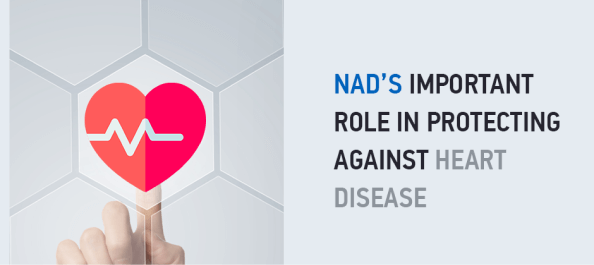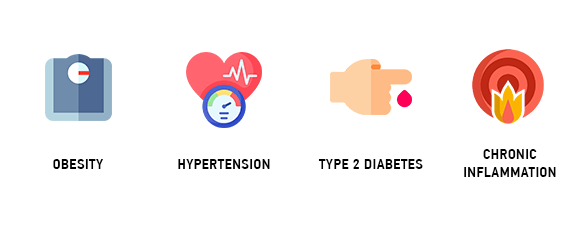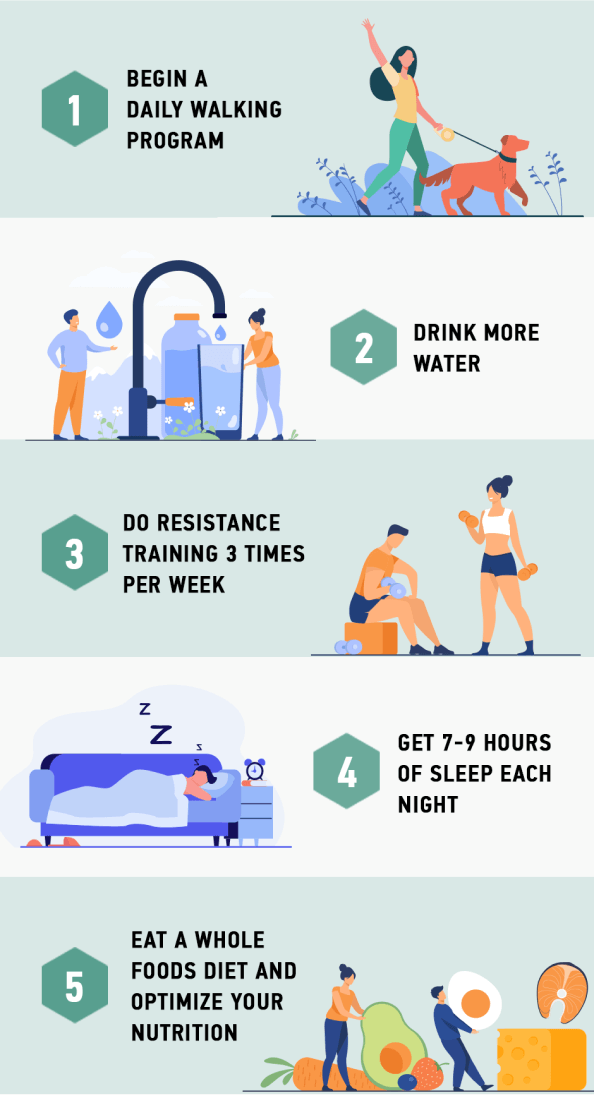
Heart disease has been the number one killer of American adults for decades now, and it has been identified as a primary comorbidity in patients who die of COVID. According to the Centers for Disease Control and Prevention (CDC), heart disease accounted for the deaths of 697,000 Americans between 1999 and 2020 – that’s about 212 deaths per 100,000 citizens.
With solid statistics linking heart disease to death, you would think that combating heart disease would be a primary mission of the CDC, National Institutes of Health (NIH) and other federal agencies charged with safeguarding our health. Yet little is done to encourage proper nutrition, physical activity and other healthy lifestyle choices known to halt and reverse heart disease. Instead, patients with metabolic disorders that lead to heart disease are prescribed pharmaceutical solutions that mask symptoms, with no effort to address the underlying cause.
Meanwhile, new research is pointing to nicotinamide adenine dinucleotide (NAD+) , an essential coenzyme involved in cellular metabolism, as a key factor in protecting against heart disease. NAD IV therapy shows promise as an effective treatment for heart disease and its metabolic precursors.
What is NAD and What Does it Do?
NAD is a coenzyme present in every cell of your body, and it plays a key role in multiple metabolic processes. It affects factors that regulate the aging process, and plays a critical role in mitochondrial function and the production of ATP, the energy molecule.
Low NAD levels have been directly associated with metabolic syndrome, a cluster of conditions that lead to heart disease.
Conditions involved in metabolic syndrome include:
- Obesity
- Hypertension
- Type 2 diabetes
- Chronic inflammation

In a recent report, the CDC revealed that the vast majority of COVID deaths — nearly 95% — occurred in patients with four or more comorbidities, including those associated with metabolic syndrome, along with heart disease and lung disease. Of those, nearly 75% were over age 65. NAD levels decline significantly after middle age, putting the elderly at greater risk of disease and death..
The Link Between NAD, SIRT1 and Heart Disease
People with metabolic syndrome are at higher risk of death from heart disease, and a common trait in metabolic disorders is diminished levels of NAD in multiple organs and tissues, including adipose tissue, muscles, liver and the brain’s hypothalamus.
A common marker of people at risk for heart disease is chronic inflammation. Ongoing low-grade inflammation impacts the endothelium, the thin layer of cells that lines the arteries. Silent Information Regulator 1 (SIRT1) is an NAD-dependent signaling protein that helps to control inflammation by regulating endothelial nitric oxide synthase (eNOS).
When NAD levels are low, SIRT1 is less effective because it must bind to NAD to do its job. In addition, ample amounts of zinc must be present for binding to take place. Zinc deficiency is also a common thread in people with metabolic syndrome and heart disease.
5 Things You Can Do Right Now to Prevent and Reverse Heart Disease

1. Begin a daily walking program
Staying physically active is one of the best ways to improve metabolic health and reduce your risk of cardiovascular disease. Walking is an activity that most people can do, and it has the added benefits of improving posture and slowing the aging process.
2. Drink more water
Your blood, brain and vital organs all depend on ample amounts of fluids to function at their best. Chronic dehydration is a key factor in metabolic decline and heart disease. Drink one ounce of spring water daily for every two pounds of body weight and watch your physical and cognitive health improve.
3. Do resistance training 3 times per week
Resistance training promotes healthy mitochondria in the cells, enhancing energy production by proliferating more NAD synthesis. It is one of the best and fastest ways to combat aging and improve your overall health.
4. Get 7-9 hours of sleep each night
Sleep deprivation is a key contributor to chronic inflammation. Inadequate sleep can act as a catalyst that leads you down the path of metabolic decline toward heart disease and premature death..
5. Eat a whole foods diet and optimize your nutrition
When your mitochondria are unable to convert dietary fat and glucose to energy, excess calories get stored as body fat. By improving your mitochondrial function and increasing your lean muscle mass, you can speed up energy metabolism and begin to shed excess pounds. NAD+ IV therapy combined with regular exercise is key to maintaining a healthy body weight as you age while boosting your energy levels.
- eliminate sugar and simple carbs
- steer clear of processed foods
- eat a variety of green leafy vegetables daily
- eat only organic pasture-raised protein and wild-caught fish
- spend time outdoors daily to boost Vitamin D levels
- supplement with NAD IV therapy, zinc, and antioxidants like Vitamin C and glutathione
Get NAD IV Therapy in NYC
Taking measures to safeguard against heart disease is a proactive decision to take charge of your own health. NAD IV therapy and immune-supportive antioxidant therapy can help mitigate your risks of death from heart disease while adding an extra layer of protection against COVID and other infectious diseases. Because NAD and antioxidants are nutrients and not drugs, you do not need a prescription for NAD treatment.
The specialists at InVita Wellness in NYC are dedicated to providing New Yorkers with all-natural solutions that boost immunity and combat disease. Contact InVita Wellness today to schedule your NAD IV therapy session, and take control of your health so you can live life to its fullest.
Resources
Askin, Lutfu, et al. “The relationship between coronary artery disease and SIRT1 protein.” Northern Clinics of İstanbul 7.6 (2020): 631.
Miller, R., A. R. Wentzel, and G. A. Richards. “COVID-19: NAD+ deficiency may predispose the aged, obese and type2 diabetics to mortality through its effect on SIRT1 activity.” Medical hypotheses 144 (2020): 110044.
Ried, Karin, Taufiq BinJemain, and Avni Sali. “Therapies to Prevent Progression of COVID-19, Including Hydroxychloroquine, Azithromycin, Zinc, and Vitamin D3 With or Without Intravenous Vitamin C: An International, Multicenter, Randomized Trial.” Cureus 13.11 (2021).